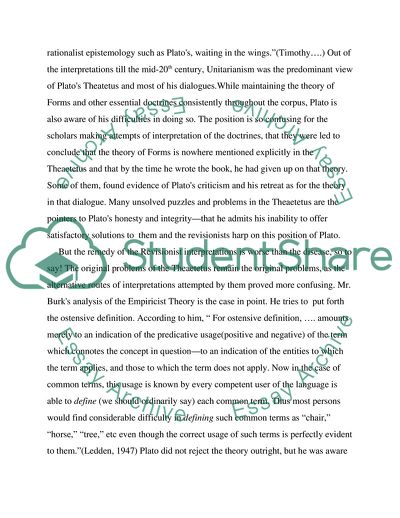Cite this document
(Does Plato's Theaetetus Provide a Comprehensive Refutation of Empirici Term Paper, n.d.)
Does Plato's Theaetetus Provide a Comprehensive Refutation of Empirici Term Paper. Retrieved from https://studentshare.org/philosophy/1731882-does-platos-theaetetus-provide-a-comprehensive-refutation-of-empiricism
Does Plato's Theaetetus Provide a Comprehensive Refutation of Empirici Term Paper. Retrieved from https://studentshare.org/philosophy/1731882-does-platos-theaetetus-provide-a-comprehensive-refutation-of-empiricism
(Does Plato'S Theaetetus Provide a Comprehensive Refutation of Empirici Term Paper)
Does Plato'S Theaetetus Provide a Comprehensive Refutation of Empirici Term Paper. https://studentshare.org/philosophy/1731882-does-platos-theaetetus-provide-a-comprehensive-refutation-of-empiricism.
Does Plato'S Theaetetus Provide a Comprehensive Refutation of Empirici Term Paper. https://studentshare.org/philosophy/1731882-does-platos-theaetetus-provide-a-comprehensive-refutation-of-empiricism.
“Does Plato'S Theaetetus Provide a Comprehensive Refutation of Empirici Term Paper”, n.d. https://studentshare.org/philosophy/1731882-does-platos-theaetetus-provide-a-comprehensive-refutation-of-empiricism.


